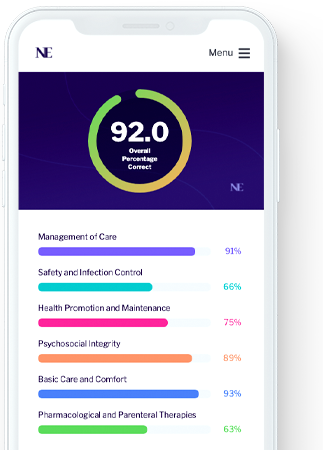Balancing Care and Self-Care: Setting Personal Boundaries in Nursing
If you are a nurse, you may have trouble setting boundaries. Your days are busy, and it can easily feel selfish to meet your own needs. But this is a recipe for burnout. Imagine a busy shift. Your bladder is bursting, but your patient just called out for pain meds. You can’t pee while your patient is in pain, right?
You look around for a colleague, but the nurses’ station is empty. So you breathe through the discomfort and bring your patient their meds. On the way back, you see another patient trying to get out of bed, so you run in to help. Before you know it, hours have passed without a bathroom break. You can laugh—you may have experienced this once, twice, or hundreds of times. But this is not sustainable! You need to establish some professional boundaries.
Professional Boundaries Defined
The National Council of State Boards of Nursing (NCSBN) defines nursing boundaries like this: “Professional boundaries are the spaces between the nurse’s power and the patient’s vulnerability.” This can encompass more than just pee breaks. Nursing boundaries prevent:
- Becoming over-involved emotionally
- Sexual misconduct
- Speaking to a patient with too much familiarity (oversharing)
- Using social media to connect with a patient
The line between caring for a patient and becoming overinvolved can look blurry. You may have taken care of a few special patients that you got along with more than others. You looked forward to going into their room and gabbing. But as a nurse, you are part of an imbalanced power dynamic, and you have to remember to respect both your boundaries and your patients’.
Why Do Nurses Need Boundaries?
Without boundaries, patients can feel unsafe and nurses can feel overworked. If you share intimate details about your life, for example, your patient may feel uncomfortable. But, they might not want to say anything because they are completely reliant on your good graces. Similarly, if a patient asks too much of you, whether it be time, inappropriate questions, or abusive behavior, you will not be able to give them the best care possible.
Boundaries go beyond patients: you also have to have boundaries with your coworkers and management. If you say yes to every request, you’ll find yourself working five shifts a week, bathing everyone’s patients, and covering hour-long lunch breaks.
Why it is Hard for Nurses to Set Boundaries
As a nurse, you probably feel genuine care and concern for your patients. You may love your coworkers and want to do everything you can to help them. You want to be a team player and pitch in when your manager asks for something.
Guilt can easily override any other emotion you might feel and goad you into agreeing to things you shouldn’t. You may pick up your friend’s weekend shift even though you know it will exhaust you. It’s hard to set boundaries when your first instinct is to serve.
Boundary-Setting Dos and Donts
So, you may wonder, how can you start to set professional boundaries? Establishing boundaries is not yelling “NO!” to everyone who opens their mouth near you, but it’s also not saying “Yes” with a smile and a sinking stomach. It’s somewhere in the middle.
What Good Boundaries Look Like
When someone asks you for something, whether it is a patient, a coworker, or your boss, stop and ask yourself some questions:
- Is this part of my job?
- Do I have time for this?
- Will it benefit my patient’s or my health if I accept this request?
If the answer to any of these questions is “No,” tell the person asking that you can’t do it. If they don’t respond well (or at all), you can choose to ignore their behavior and go about your day. You can also go to your charge nurse, further up the chain to your manager, or even HR, depending on the situation.
You may not know if you can say no. Do some research and make sure your facility’s policy doesn’t negate your boundary. For example, if you are saying no to picking up extra shifts, your employee policy document may state something like, “You have to pick up one extra shift every month,” or something similar. That being said, if you’re unsure, know it’s also the asker’s job to inform you about a policy requirement.
What Boundaries are Not
Having boundaries does not mean you can get lazy or offload your work onto your coworkers. It’s also not a good idea to be a jerk when setting boundaries. If your coworker asks you to pick up their weekend shift, don’t respond in a mocking or mean tone. You can create healthy boundaries with kindness and patience.
You are Worth It
A no-boundary working environment will run you right into the ground in record time. If you feel guilty about setting boundaries, remind yourself that you can’t take care of your patients, help out your coworkers, or contribute to your unit if you end up quitting because of burnout. You are helping your patients and friends in the long run, and your personal health and sanity are worth the effort.




